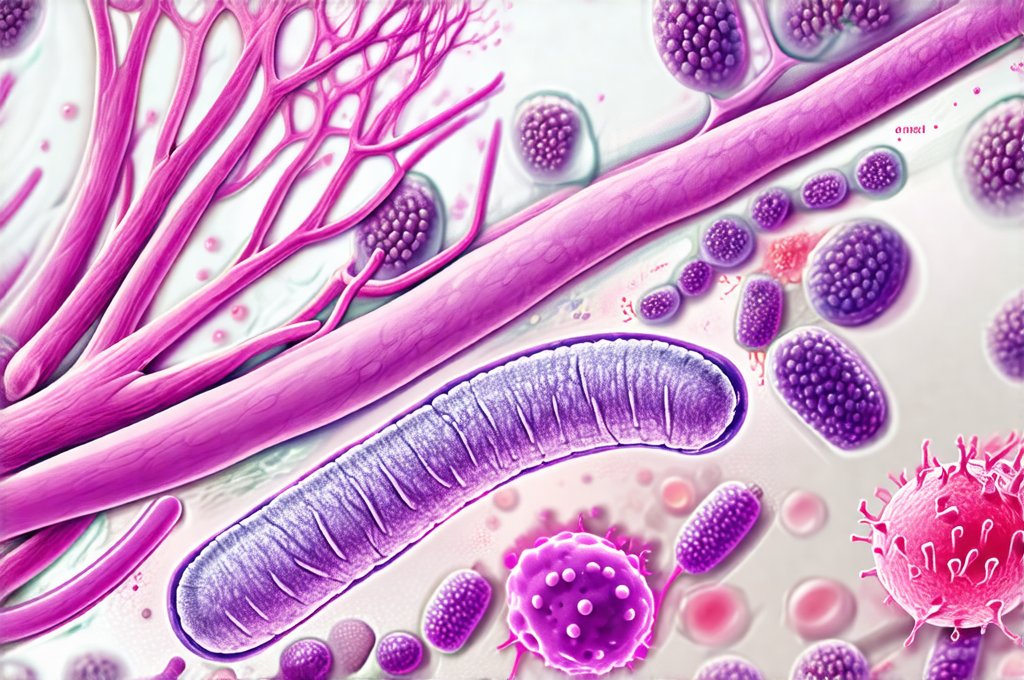Hormonal fluctuations are an inherent part of life, impacting women specifically through phases like menstruation, pregnancy, and eventually, menopause. However, significant shifts in hormone levels – whether induced by therapies for conditions like breast cancer or naturally occurring during the menopausal transition – can profoundly disrupt the delicate ecosystem within our bodies, most notably the gut microbiome. This disruption isn’t merely a digestive issue; it’s intricately linked to overall health, influencing everything from immunity and mood to weight management and cognitive function. Understanding this connection is crucial for regaining vitality and navigating these life stages with greater well-being.
The human body hosts trillions of microorganisms – bacteria, fungi, viruses, and others – collectively known as the microbiome. The gut microbiome, in particular, plays a vital role in nutrient absorption, immune system regulation, and even mental health through the gut-brain axis. Hormonal imbalances can alter the composition and diversity of this microbial community, leading to dysbiosis – an imbalance that favors harmful bacteria over beneficial ones. This article will explore how hormonal therapies and menopause impact the microbiome, and strategies for restoring balance to support overall health during these transitions. It’s important to note that individual responses vary, and consulting with healthcare professionals is essential when making changes to your diet or lifestyle. Perhaps starting with restoring digestive balance can help.
The Impact of Hormonal Therapy & Menopause on Microbial Balance
Hormonal therapies, frequently used in cancer treatment (particularly breast cancer) and hormone replacement therapy (HRT), can significantly alter the gut microbiome. Chemotherapy, for example, isn’t just cytotoxic to cancer cells; it also impacts the rapidly dividing cells within the intestinal lining, leading to mucositis – inflammation of the digestive tract – and a subsequent reduction in microbial diversity. Similarly, certain targeted therapies and aromatase inhibitors used in breast cancer treatment have been shown to disrupt gut bacteria composition. This disruption can manifest as gastrointestinal distress like diarrhea, nausea, or constipation, but its effects extend far beyond digestion. A less diverse microbiome is often associated with reduced immune function and increased susceptibility to infections.
Menopause itself brings about a decline in estrogen levels, which profoundly impacts the gut microbiome. Estrogen influences the gut barrier integrity; as levels decrease during menopause, this barrier can become more permeable – often referred to as “leaky gut.” This allows undigested food particles and toxins to enter the bloodstream, triggering inflammation and potentially contributing to autoimmune reactions. Furthermore, estrogen has a direct influence on microbial composition, promoting the growth of beneficial bacteria like Lactobacillus and Bifidobacterium. The decline in estrogen during menopause shifts this balance, often leading to an increase in less desirable bacterial species. Understanding hormonal changes can help you prepare for these shifts.
This interconnectedness between hormones and gut health is becoming increasingly recognized by researchers. It’s not simply a matter of hormonal changes causing digestive issues; it’s a complex interplay where microbiome imbalances can exacerbate hormonal symptoms and vice versa, creating a feedback loop that impacts overall health and well-being. This makes restoring microbial balance an essential component of holistic health management during these transitions.
Dietary Strategies for Microbiome Restoration
Diet is arguably the most powerful tool we have for influencing our gut microbiome. A diet rich in plant-based foods provides prebiotics – non-digestible fibers that feed beneficial bacteria – and promotes diversity. Focusing on whole, unprocessed foods minimizes inflammation and supports a healthier gut environment. Here are some key dietary strategies:
- Increase Fiber Intake: Aim for at least 25-30 grams of fiber per day from sources like fruits, vegetables, legumes, and whole grains. Different types of fiber feed different bacteria, so variety is important.
- Embrace Fermented Foods: Incorporate fermented foods into your diet regularly. These contain probiotics – live microorganisms that can directly contribute to a healthier gut microbiome. Examples include yogurt (with live cultures), kefir, sauerkraut, kimchi, kombucha, and miso.
- Limit Sugar & Processed Foods: High sugar intake and processed foods feed harmful bacteria and disrupt the balance of the microbiome. Minimize consumption of sugary drinks, refined carbohydrates, and ultra-processed snacks.
A gradual approach to dietary changes is often more sustainable. Suddenly increasing fiber intake can lead to bloating and discomfort, so introduce it slowly and drink plenty of water. Experimenting with different fermented foods can help identify those that are well-tolerated and beneficial for your individual microbiome. If you’ve recently experienced a stomach bug, consider reintroducing foods carefully.
The Role of Probiotic & Prebiotic Supplementation
While a food-first approach is ideal, targeted supplementation with probiotics and prebiotics can be helpful in restoring microbial balance, particularly during hormonal therapy or menopause. However, it’s important to understand that not all probiotic supplements are created equal, and choosing the right strain(s) for your specific needs is crucial.
Probiotic supplements come in various formulations containing different bacterial strains. Some strains are more effective for addressing specific conditions, such as diarrhea or bloating, while others may be better suited for immune support. Researching reputable brands and considering a probiotic with multiple strains can offer broader benefits. Prebiotic supplementation, often in the form of fibers like inulin or fructooligosaccharides (FOS), can further enhance the growth of beneficial bacteria.
It’s vital to note that probiotics are not a one-size-fits-all solution. Some individuals may experience temporary digestive upset when starting probiotic supplements. Starting with a low dose and gradually increasing it can help minimize these side effects. Always consult with your healthcare provider before beginning any new supplement regimen, as certain strains may interact with medications or be contraindicated for specific health conditions.
Stress Management & Gut Health Connection
The gut microbiome is highly sensitive to stress, and chronic stress can significantly disrupt its balance. The hypothalamic-pituitary-adrenal (HPA) axis – the body’s primary stress response system – interacts directly with the gut microbiome. When we’re stressed, cortisol levels rise, which can alter gut motility, reduce microbial diversity, and increase intestinal permeability. This creates a vicious cycle where stress compromises gut health, leading to further physiological and psychological distress.
Implementing effective stress management techniques is therefore essential for restoring and maintaining microbial balance. Some helpful strategies include:
- Mindfulness & Meditation: Regular mindfulness practice can help calm the nervous system and reduce cortisol levels.
- Regular Exercise: Physical activity releases endorphins, which have mood-boosting effects and can also improve gut motility.
- Adequate Sleep: Prioritizing 7-9 hours of quality sleep per night is crucial for hormonal balance and stress management.
- Social Connection: Strong social support networks provide emotional buffering against stress.
Addressing the psychological component of health is just as important as addressing the physical. Integrating stress management techniques into your daily routine can significantly improve gut health and overall well-being during periods of hormonal transition. Feeling overwhelmed? Consider grounding after nausea. Dealing with indigestion? Look at managing acid buildup after meals. A good plan may involve building a recovery plan.
It’s essential to remember that restoring microbial balance isn’t a quick fix, but rather an ongoing process requiring consistent effort and attention to lifestyle factors. By prioritizing diet, considering targeted supplementation when appropriate, and managing stress effectively, you can support your gut microbiome and navigate these transitions with greater vitality and resilience.


















